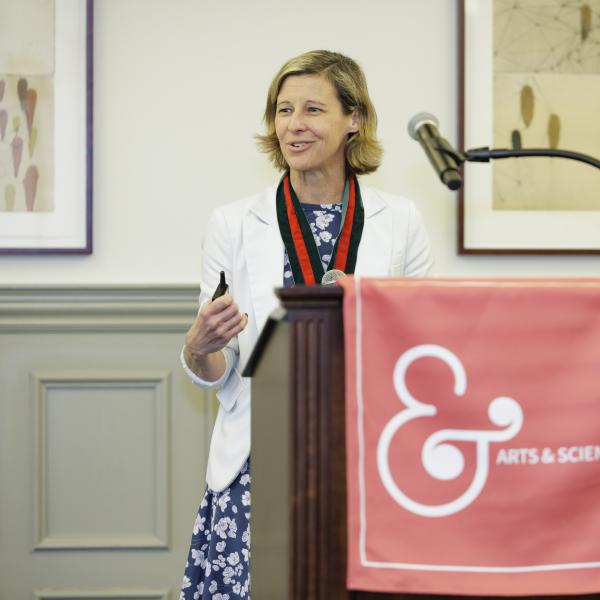This month, Arts & Sciences researchers were awarded grants from organizations including the Simons Foundation and the National Nuclear Security Administration.
Rita Parai, assistant professor of geochemistry in the Department of Earth and Planetary Sciences, was awarded a $750,000 grant from the Department of Energy's National Nuclear Security Administration for a project titled "Seeing through the fission: Multi-modal analyses of actinides and noble gas isotopes in geological samples."
Alexander S. Bradley, associate professor of Earth and planetary sciences, received a $540,000 grant from the Simons Foundation in support of research on the biogeochemical consequences of metabolic heterogeneity and marine microbial carbon degradation.
Alexander Barnes, assistant professor of chemistry, is the inaugural recipient of the Russell Varian Young Investigator Award, which will be presented at the Experimental NMR Conference in April. Barnes also received an award in the Leadership in Entrepreneurial Acceleration Program (LEAP) Inventor Challenge from the Skandalaris Center for Interdisciplinary Innovation and Entrepreneurship.
Manel Errando, research scientist and lecturer in the Department of Physics, received a $363,000 award from NASA in support of developing thin-film polymer actuators for high-resolution X-ray optics.
Arpita Bose, assistant professor of biology, received a $350,000 award from the U.S. Army to acquire advanced microscope technology for studying how microbes interact with charged surfaces.
Alian Wang, research professor in Earth and planetary sciences, received a $149,000 grant from NASA/JPL toward research on compact integrated raman spectrometry (CIRS).
Catherine Tang, a graduate student working with Todd Braver, professor of psychological and brain sciences, was awarded a $39,000 grant from the National Institutes of Health's National Center for Complementary and Integrative Health for a project titled "Examining mindfulness training effects and mechanisms on cognitive control."
Yehuda Ben-Shahar, associate professor of biology, received a $2,000 award from the St. Louis chapter of the Society for Neuroscience in support of the St. Louis Area Brain Bee.
Did we miss something? Contact Crystal Gammon, assistant director of science communications in Arts & Sciences.



